What is your Google advertising ID and why is Google allowing users to hide it?
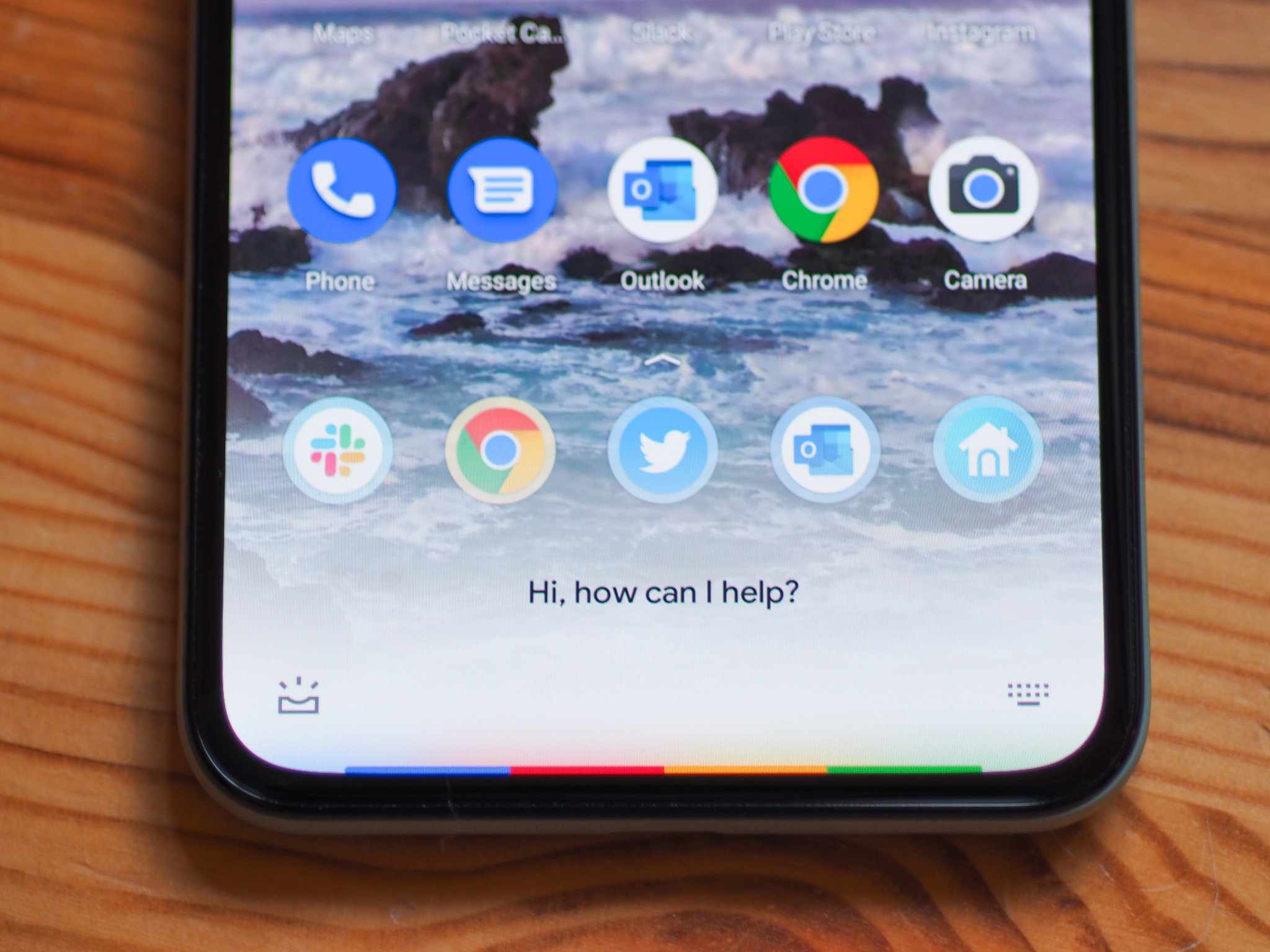
Google has built many of the products and services we use every day, but selling things to consumers isn't how the tech giant makes the bulk of its money. Google is primarily an advertising company.
That doesn't mean Google is creating ads and making sure you see all of them (though the company can help create captivating advertisements); it means that Google sells advertising space for other companies to use inside of its products and across the web. This is a very competitive space and one where Google has a unique (and potentially unfair) advantage: tracking our interests can focus on showing the right ads to the right people.
Google makes money because it knows what you like.
I'll use the same analogy I always use here. I like fishing. I buy fishing equipment on the internet, research fishing spots on the internet, and watch videos about new fishing techniques on the internet. I subscribe to several online publications about the sport of fishing. Because Google tracks the things we do on the internet, a machine at Google knows how interested I am in fishing.
If a company approaches Google and wants to buy ad space to market a new line of fishing lures, Google can tell that company that it will show the product to people who have expressed an interest and are more likely to purchase it. People like me. Google can do this better than any other company, though Facebook is getting much better at doing the same thing. Interest-based ads are a literal goldmine.
You're automatically opted-in, so this is worth understanding.
Google does not try to hide how it does this, nor does the company make it difficult to opt-out of the practice. Notice I said opt-out — if you use even the best Android phone, you are automatically opting in unless you change a setting. That setting is your unique Google advertising ID.
Like everything else Google does, your Google advertising ID is a randomly generated number that Google's servers can match to a set of interests. No human being is ever looking through your app usage and internet history to see what sort of things you like because it's much easier and faster to let a computer algorithm keep track of it all. To most everything Google, we're just a faceless number.
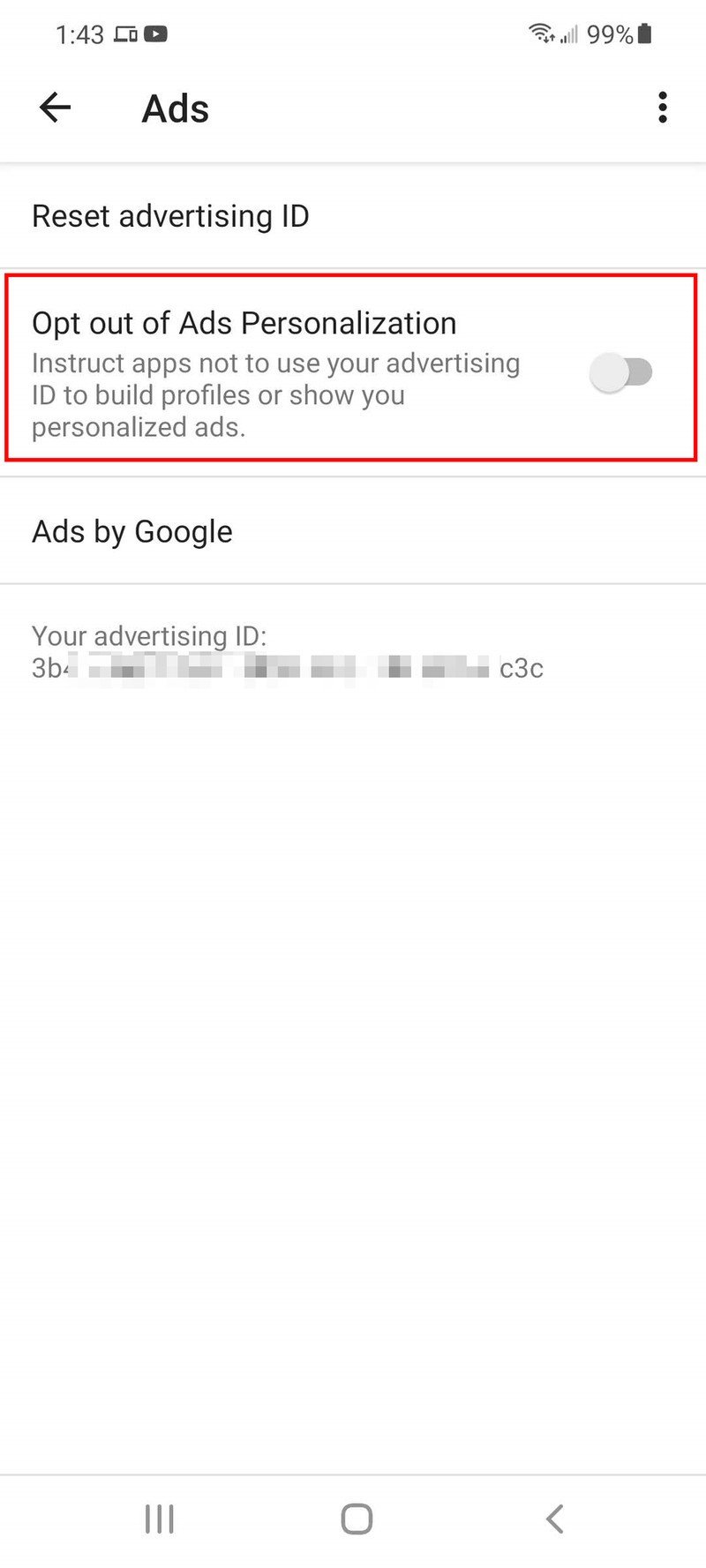
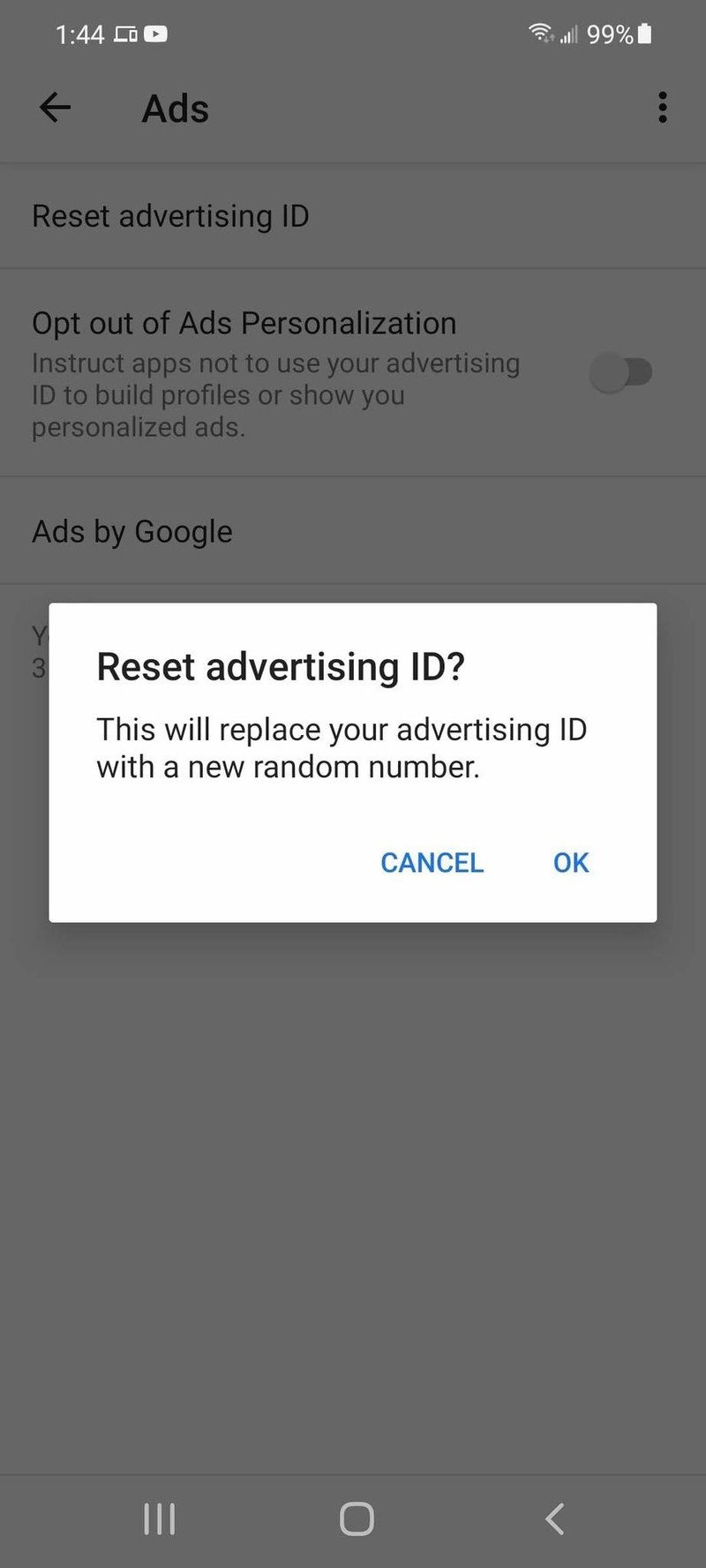
Source: Jerry Hildenbrand / Android Central
Be an expert in 5 minutes
Get the latest news from Android Central, your trusted companion in the world of Android
When it comes to ads on your phone that try to be interest-based, you can opt-out as mentioned above. This has nothing to do with third-party cookies or FLoC or any other web initiative. This is just about ads you see inside apps on your phone. It's not even hard to do:
- Open your phone's settings
- Find the section labeled Google and open it
- Under Services on this device, you'll see an entry marked Ads. Open it.
You have two choices: reset your advertising ID or opt-out of using it. If you choose the former, you simply generate a new unique number that's used to show you targeted ads. If you opt-out of using an advertising ID, developers can't show you targeted ads. It's tempting to opt out of ad targeting, but you need to know that you are still being tracked and that you will still see ads. This just means you won't see ads based on the things you are interested in.
Big changes are coming
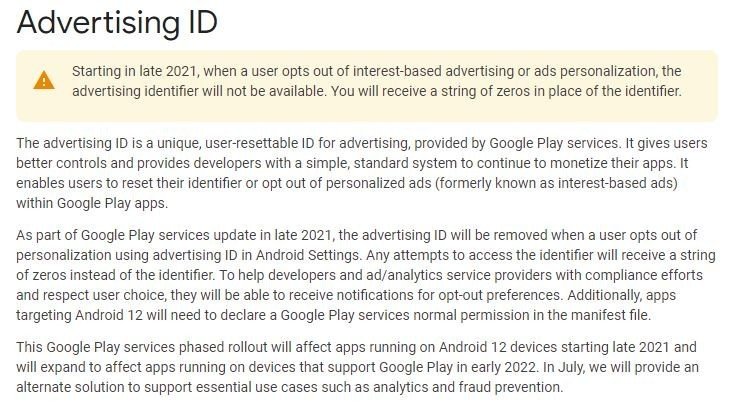
Google is changing the way developers access your advertising ID. Starting in late 2021, an update to Google Play Services will return a value of 35 zeros as your advertising ID if you choose to opt-out. Your real advertising ID stays intact in case you ever change your mind, but developers — including Google itself — just get all those zeros if they use interest-based ads inside of their apps.
The reasoning behind this is based on more than just privacy, though it does bolster our privacy a little bit. It's also about abuse.
Rules really aren't made to be broken. At least sometimes.
There are hard and fast rules that developers and other advertisers must adhere to if they want to use your advertising ID. They are mostly common-sense rules like not matching the advertising ID to another unique identifying feature of your phone, making a user aware of how everything works by including a privacy policy link in the Google Play Store page and making sure ads respect the same age rating of the app they are placed in.
But common-sense rules with strict enforcement don't mean companies and developers aren't trying to circumvent them. It is possible to connect an advertising ID with persistent identifiers — things that aren't faceless numbers and are connected directly to you. Things like:
- An SSAID, a number developers can use to store your data and restore it to an app if you change phones.
- A MAC address, a "Media Access Control" address that's used to identify the network interface hardware in a device.
- Your phone's IMEI, the International Mobile Equipment Identity number that's unique to your phone and required for every device with a SIM card.
Once you've connected something like an advertising ID to any other unique and easily identifiable bit of information on your phone, all bets are off when it comes to privacy. A crafty company that builds an equally crafty ad network can track your activity on its own and no longer requires an advertising ID or has to depend on Google to facilitate the showing of interest-based ads.
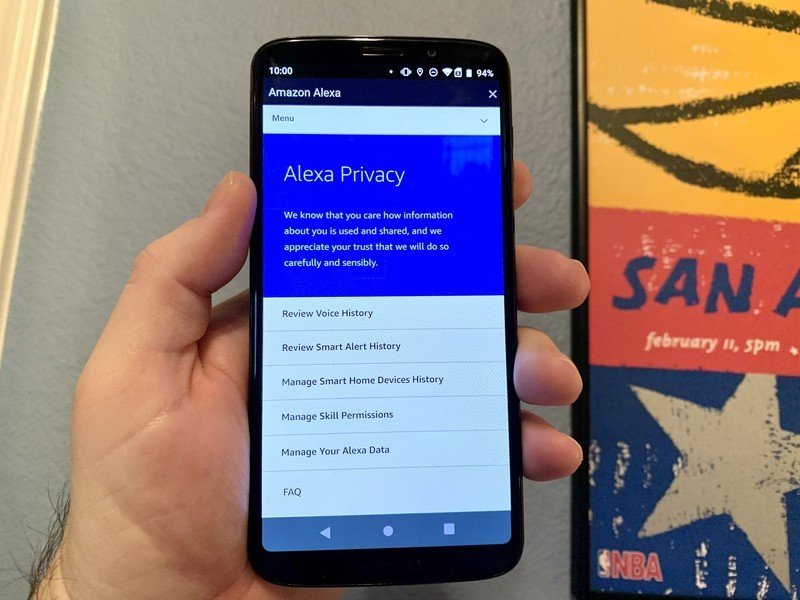
Google gives no examples of this actually happening but does mention explicitly that it is not to be done. That tells me that somewhere, someone has tried it and got caught. Rules aren't made for the people who would follow them, after all.
With the upcoming changes later this year, this no longer becomes a problem. When an app tests your advertising ID and you have opted out, a bunch of useless data is returned, which is how it should have been from the beginning. Thankfully, this is a Google Play Services update and won't require you have Android 12 installed for it to happen. That means it can actually be an effective deterrent.
Should you opt-out?

I can't decide that for you, but I can tell you why I don't choose to opt-out.
My usage on Android is going to be tracked whether I have opted out or not. We aren't allowed to choose not to be tracked by Google (or the company that made our phone, too) while we are using an Android phone with Google's services installed. Read the agreement the next time you set up a new phone and see for yourself. I would opt out of this in a hot minute if I could.
Whether I have opted out or not, I am still going to see ads from Google, Facebook, Amazon, and a myriad of other smaller advertising companies while I am using my phone. If I have to see ads and am still being tracked, I might as well see ads for products I might be interested in buying.

I see ads for fishing gear, ads for audio equipment, ads for tools and home improvement supplies, and ads for pet bird products. Those are the types of things I buy online, and every once in a while, I catch a nice sale and save a few dollars. I'm not interested in seeing ads for women's shoes, for example, because I know nothing about buying women's shoes and would never just buy a pair for someone else online. I actually get some value from interest-based ads, and while it's nowhere near the value the advertiser gets from showing them to people like me, it's better than nothing.
If opting-out meant less tracking, I'd do it in a heartbeat.
You need to decide how you feel about the whole bigger picture. By not opting out, you are benefitting big corporations that can afford to place expensive interest-based ads, so there is that to think about. You're also furthering the idea that usage tracking is an effective marketing tool. If we all opted out tomorrow and never opted back in, the model would quickly go away, and maybe we would be tracked less. Probably not.
In any case, now you know what your advertising ID is, why Google has to change how it works, and how you can opt out if you like. Knowing is half the battle!

Jerry is an amateur woodworker and struggling shade tree mechanic. There's nothing he can't take apart, but many things he can't reassemble. You'll find him writing and speaking his loud opinion on Android Central and occasionally on Threads.
